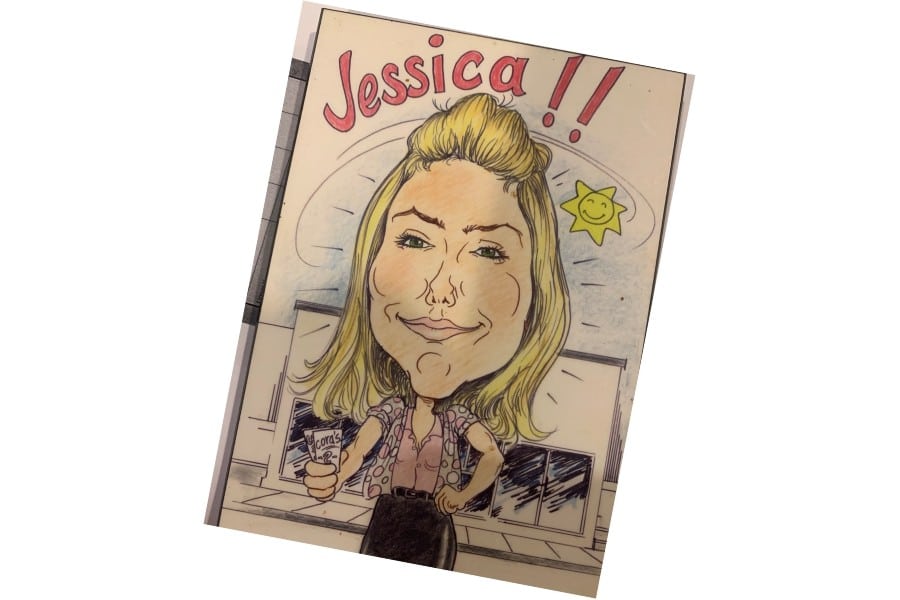I remember in the 1980s, my mom would treat us to McDonald’s on our monthly trip to the grocery store.
My parents farmed and hunted most of our food. But things like cereal, sugar, and tea required us to go to the store once a month.
The nearest Mickey D’s was 30 minutes away. We didn’t have much money, so eating at the Golden Arches was mom’s version of eating out.
At the counter, I can still see the plaque to the left. It had a picture of an employee. And below it were names of other workers who had previously earned the prestigious award of “Employee of the Month”.
From the ’80s into the ’90s and beyond, employee recognition strategies have evolved or dissolved.
Many of the recognition strategies I’ve witnessed are shallow, so they don’t carry the same weight and pride as they did in the ’80s.
In my first restaurant, our team developed a two-pronged recognition program.
One for employees and one for customers.
I got an idea for “Customer of the month” watching “King of Queens” tv show.
Arthur, played by Jerry Stiller, wanted to be recognized as customer of the month at his local coffee shop.
Thinking of the power of recognition from the ’80s and being just different enough, I thought it would be interesting to implement in the restaurant.
As owner, I couldn’t decide the winner unless there was a tie.
The employees had to nominate candidates at the monthly meeting.
The candidates could not be chosen for financial reasons (Tips, money spent, etc.)
The candidates had to bring a level of joy to our lives.
To be nominated, we had to know the customer’s name.
An employee could only be nominated with a reason.
You couldn’t nominate yourself.
All voting was done by a show of hands at our monthly meeting.
We called the program Sunshine Club.
One final rule, and for me the most important: We would not air dirty laundry at our meetings. If something needed to be dealt with, it would be done behind closed doors.
In the beginning, it was clunky. The staff wanted me to decide on winners. They wanted to complain about little things. But we held to our rules.
Both employees and customers of the month received a plaque with a caricature drawing of themselves.
After six months, employees were recognizing each other with little compliments, customers’ names were shared at our meetings, staff retention was rising.
Sales were up 43% at the end of the year.
The idea was to create raving fans by creating a monthly recognition program. In two years, we had recognized 24 customers. We were serving 1500 per week.
One could argue recognized customers created positive word of mouth for our business.
But 24 customers paled in comparison to the tens of thousands of smiling faces, positive vibes, and hand-in-hand teamwork we had built on the backend.
The employee recognition program was structured to make everyone feel good. Even if someone didn’t win, they got compliments through the monthly nominations.
As we look at the labour shortage facing businesses today, we must remember Abraham Maslow’s theory on the hierarchy of needs.
The first is Physiological.
People need food, water, shelter, clothing.
If you’re not paying them enough to provide these basic needs, they will not. No, they cannot continue to work for you given more money elsewhere.
The second is Safety.
They need to feel safe and healthy.
If they work in an environment where negativity, back-stabbing exists, they will not feel safe and eventually move on.
The third is Love and belonging.
They need friends and a sense of connection in the workplace.
Employees who don’t fit in with others will feel alone and eventually will leave. The positive words and constant thank you’s contribute to feelings of worth.
The fourth is Esteem.
They need respect and recognition.
Maslow’s theory has never been more powerful than in today’s labour shortage.
My restaurant had mostly minimum-wage employees. At that time, the industry had a 100% employee turnover rate. We were under 25%.
In searching for a recognition program for customers, I learned a practical way to apply Maslow’s Theory to a group of diverse employees to raise retention rates, restaurant sales, and general joy.
- Pretend is bad for business - July 9, 2024
- Curiosity is Creativity’s Roommate - February 10, 2023
- Labels are tattoos on your brain - December 15, 2022

